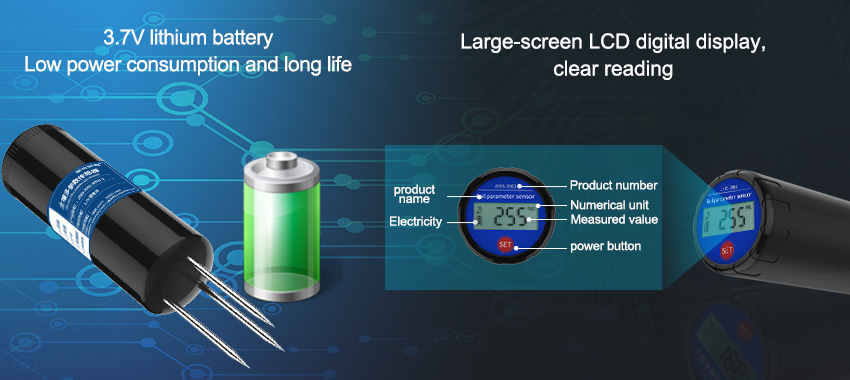Agriculture plays a vital role in feeding the growing global population. To meet the increasing demand for food, it is essential to enhance crop productivity while minimizing resource wastage and environmental impacts. Smart soil sensor systems have emerged as a powerful tool in precision agriculture, providing real-time data on soil conditions to optimize farming practices. This article explores the benefits, applications, and challenges of smart soil sensor systems in enhancing crop productivity.

Understanding Smart Soil Sensor Systems:
Smart soil sensor systems are advanced devices that measure and monitor various soil parameters, including moisture content, temperature, electrical conductivity, and nutrient levels. These sensors are typically embedded in the soil at different depths, capturing spatial variability within the field. The collected data is then transmitted wirelessly to a centralized system for analysis and interpretation. Smart soil sensor systems offer several advantages over traditional methods of soil monitoring, including real-time data collection, accuracy, and ease of use.
Optimizing Irrigation Practices:
Water is a critical factor in crop production, and efficient irrigation management is crucial for maximizing yields while conserving water resources. Smart soil sensor systems provide real-time information about soil moisture levels, enabling farmers to precisely schedule irrigation based on plant needs. By avoiding over-irrigation or under-irrigation, farmers can prevent water stress or waterlogging, leading to improved crop health and increased water use efficiency.
Tailoring Nutrient Management:
Nutrients are essential for plant growth and development. Smart soil sensor systems help farmers assess nutrient levels within the soil, enabling them to tailor fertilizer applications according to crop requirements. By providing accurate data on nutrient availability, these systems ensure that crops receive the optimal amount of nutrients at the right time. This approach minimizes nutrient wastage, reduces environmental pollution, and maximizes nutrient use efficiency, leading to improved crop productivity.
Early Detection of Plant Stress:
Stressors such as nutrient deficiencies, diseases, or pests can affect crop health and productivity. Smart soil sensor systems play a crucial role in early detection of such stressors by monitoring soil conditions. Changes in moisture levels, temperature, or electrical conductivity can indicate potential issues. By identifying these problems early on, farmers can take proactive measures to address them, preventing crop losses and enhancing overall plant health.
Managing Soil Health:
Soil health is critical for sustainable crop production. Smart soil sensor systems provide valuable insights into soil characteristics such as pH levels, organic matter content, and compaction. This information helps farmers implement targeted soil management practices. Adjusting pH levels, incorporating organic matter, or alleviating soil compaction can significantly improve soil health, enhancing nutrient availability, water infiltration, and root development. Ultimately, this leads to increased crop productivity and long-term sustainability.
Challenges and Future Directions:
Despite the numerous benefits of smart soil sensor systems, there are challenges that need to be addressed for their widespread adoption:
a) Cost:
The initial investment in smart soil sensor systems can be a barrier for small-scale farmers. Continued advancements in technology and government support programs can help reduce costs and make these systems more affordable and accessible.
b) Data Management:
Smart soil sensors generate vast amounts of data that need to be efficiently managed and analyzed. Developing user-friendly data management platforms and integrating different agricultural technologies can enable farmers to make informed decisions based on the collected data.
c) Calibration and Standardization:
Smart soil sensor systems need to be accurately calibrated and standardized across different soil types and conditions to ensure reliable and consistent measurements. Collaboration among scientists, manufacturers, and farmers is crucial in this regard.

d) Education and Training:
Farmers need to be educated and trained on the operation and interpretation of smart soil sensor systems. Providing access to training programs and educational resources will enable farmers to fully realize the benefits of these technologies and integrate them into their farming practices effectively.
Conclusion:
Smart soil sensor systems have the potential to revolutionize agriculture by optimizing irrigation practices, tailoring nutrient management, detecting plant stress early, and managing soil health. By providing real-time, field-specific data on soil conditions, these systems empower farmers to make informed decisions, leading to enhanced crop productivity, resource efficiency, and environmental susta
